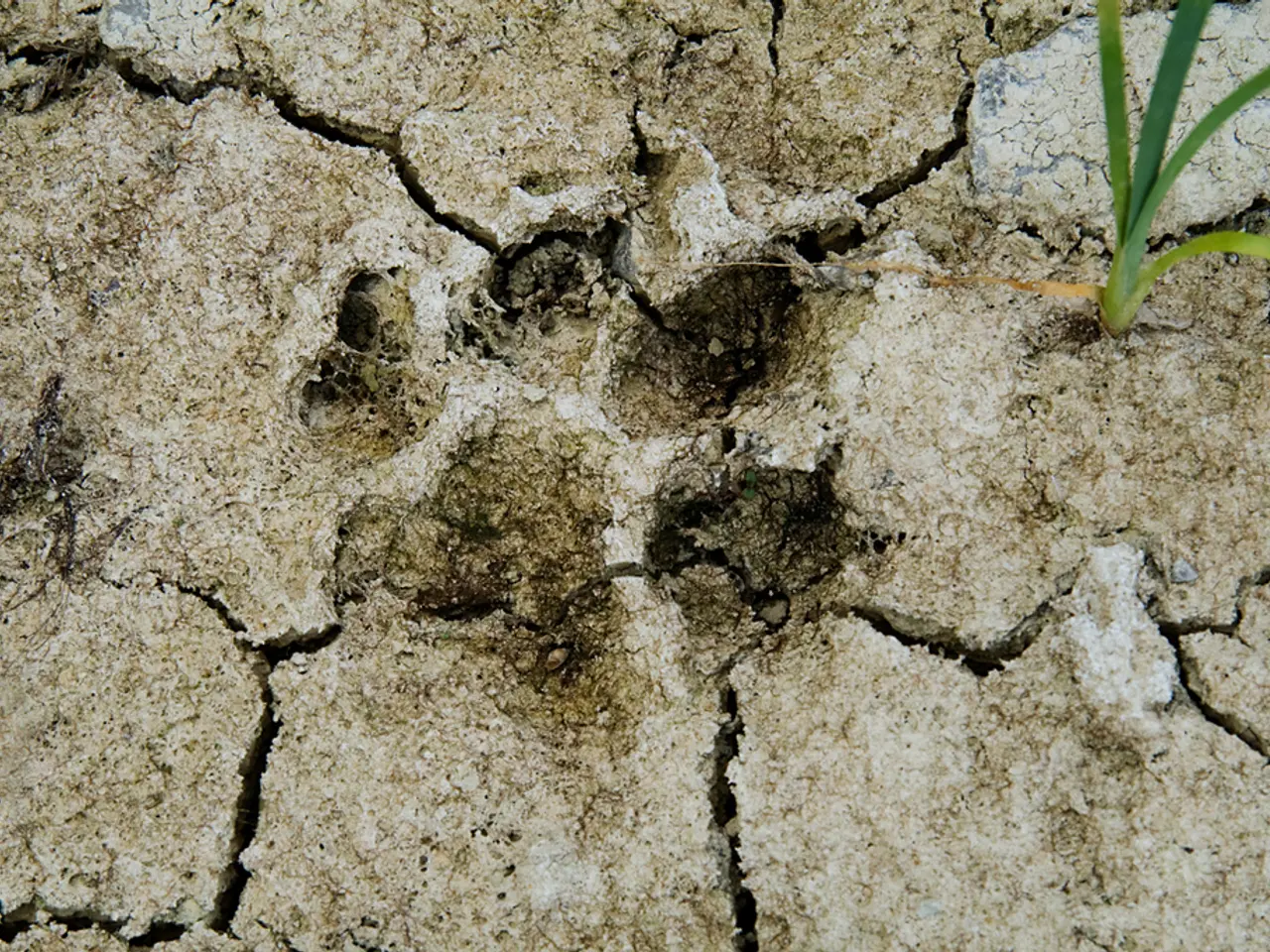Effortless Methods for Eliminating Weeds from Your Driveway's Crevices
Preventing and controlling weeds in driveway cracks doesn't have to harm the environment. Here's a combination of mechanical removal, natural herbicides, and preventive barriers that can help you keep your driveway weed-free while being kind to the planet.
Start by manually removing existing weeds. This step is crucial as it eliminates the roots and prevents further growth.
Next, opt for eco-friendly treatments such as boiling water, vinegar, or organic weed killers like corn gluten meal or specialized organic concentrates. These solutions kill weeds on contact without leaving harmful residues.
Boiling water is particularly effective for young, shallow-rooted weeds in pavement cracks and doesn't harm the environment. However, multiple treatments may be needed for mature weeds. Vinegar, on the other hand, is a readily available, affordable, and non-toxic option. It dries out weeds at the surface level, but follow-up treatments may be necessary due to vinegar not targeting the roots.
Corn gluten meal is another organic option. It prevents seed sprouting but is not effective on established weeds. Use it carefully around other plants to avoid inhibiting their growth.
In addition to these treatments, sealing the cracks in your driveway can reduce weed seed intrusion. Applying mulch or a newspaper/cardboard barrier can also block sunlight and prevent weed seed germination. Solarizing the soil beneath with plastic sheeting can kill weed seeds using trapped heat from the sun.
Remember, salt should be used sparingly. While it dehydrates weeds by drawing moisture away from their tissues, it can inhibit all plant growth and potentially damage concrete surfaces over time. Avoid using it near areas with rainwater runoff to prevent contamination of water sources.
Lastly, when choosing mulch, opt for untreated, plant-based varieties for the best results.
By combining physical removal with safe, organic weed control products and preventive physical barriers, you're on your way to an environmentally responsible approach to managing weeds in driveway cracks.
[1] Organic Weed Control: A Comprehensive Guide - Organic Authority [2] Weed Control in Driveway Cracks: Eco-Friendly Solutions - EcoHome Magazine [3] The Ultimate Guide to Natural Weed Control - Mother Earth News [4] The Effectiveness of Vinegar as a Weed Killer - The Spruce [5] The Dangers of Using Rock Salt as a Weed Killer - Earth911
- To support the health of pollinators and the ecosystem, consider using organic mulch for garden decor instead of rock salt, as the latter can harm both plants and concrete surfaces over time.
- To maintain the sustainability of your home-and-garden lifestyle, employ preventive measures such as sealing driveway cracks, applying mulch, or using a newspaper/cardboard barrier to block sunlight and prevent weed seed germination.
- For a cleaner and more eco-friendly garden, start sowing your seeds using untreated, plant-based mulch, which can enrich the soil and promote healthy plant growth.
- Along with mechanical removal and physical barriers, incorporate natural herbicides like boiling water, vinegar, corn gluten meal, or specialized organic concentrates into your gardening routine to ensure effective and environmentally friendly weed control.
- To promote a healthier garden and nurture pollinators, consider adopting organic methods to manage weeds, such as solarizing the soil with plastic sheets or using a preventive barrier of mulch or cardboard to hinder weed growth.
- By adopting an eco-friendly approach to gardening, which includes cultivating an organic garden, conserving soil health, and employing clean and sustainable methods for maintaining driveways, homeowners can contribute to a cleaner and greener lifestyle that encourages the growth of vibrant flowers and provides shelter for beneficial pollinators.




